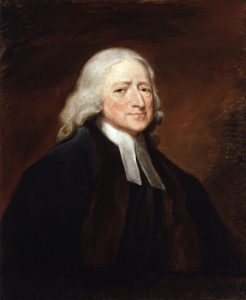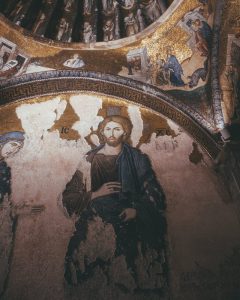From the very beginning of the Wesleyan movement, the “people called Methodist” have been committed to social action. Living out our founder John Wesley’s admonition toward “social holiness,” Methodists have been committed both to acts of “private mercy” (charity) and “public mercy” (justice). Methodist social action over the centuries has addressed prison reform, social reform, abolition of the slave trade, public education, temperance, women’s suffrage, child labor protections, labor rights, environmental protections, and racial and economic justice.
“The Gospel of Christ knows of no religion but social; no holiness but social holiness.”
—John Wesley
Service and Justice
Christian churches are drawn toward service, providing resources, food, clothing, and helping to find shelter for those in need. Beyond the provision of this immediate need is a deeper drive to address the systemic inequities that result in some being in need of food, clothing, and shelter. Giving food to the poor is an issue of charity; asking why the poor have no food is an issue of justice.
Our Witness at St. Matthew’s: The Other Six Days
At St. Matthew’s United Methodist Church we respond to the Wesleyan call to social holiness by committing to work for social justice. Our Committee on Social Justice, in partnership with our pastor, identifies issues of social justice concern for our congregation. These issues are explored and addressed through a program entitled “The Other Six Days” which seeks to connect our reflection on issues of social need with our lived-out faith through worship, study, and action. For each topic identified, we will address that issue in the context of a worship service, deepen our understanding through an education opportunity, and identify a way to take action to address the issue through direct service or social action.
If you are interested in being a part of our Christian witness for justice, email us at [email protected].


